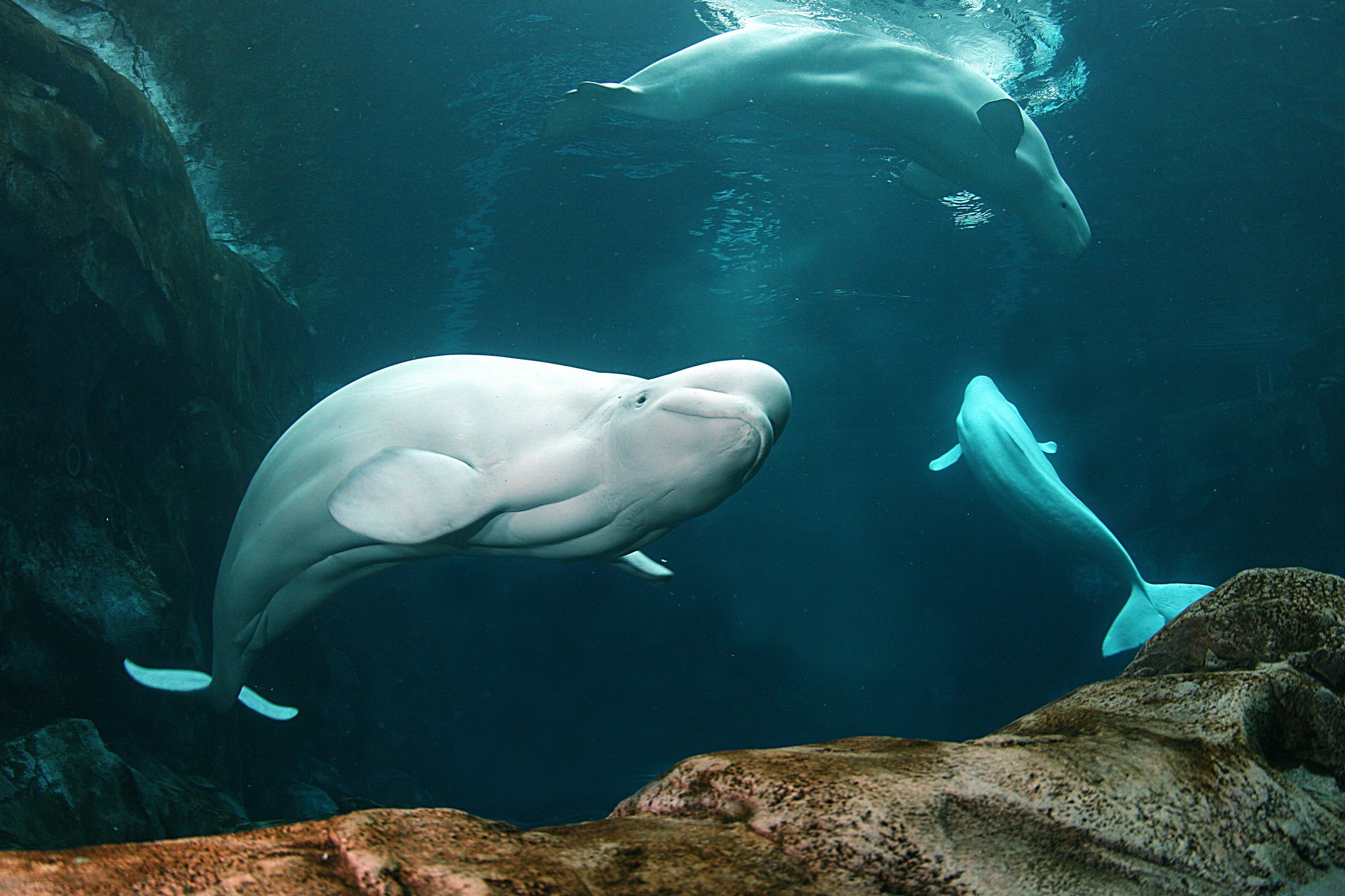Georgia Aquarium is one of the most popular tourist attractions in Atlanta, Georgia. It is home to over 120,000 animals, including beluga whales, manta rays, and whale sharks. However, despite its popularity, the question of whether the Georgia Aquarium is ethical has been raised repeatedly.
Critics argue that the aquarium’s captivity of animals is cruel and inhumane, while supporters claim that it provides valuable education and conservation efforts. In this article, we will explore both sides of the debate to determine whether the Georgia Aquarium is ethical or not.

Is Georgia Aquarium Ethical?
The Georgia Aquarium is the largest aquarium in the Western Hemisphere, located in Atlanta, Georgia. It is home to over 100,000 animals, including beluga whales, dolphins, and whale sharks. While many visitors come to the aquarium to marvel at the marine life, some have raised concerns about the ethics of keeping animals in captivity.
History of the Georgia Aquarium
The Georgia Aquarium opened in 2005, and since then, it has welcomed over 20 million visitors. It is a nonprofit organization, and its mission is to promote conservation and education about marine life. The aquarium has been involved in many research and conservation efforts, including rescuing and rehabilitating sea turtles.
Animal Welfare at the Georgia Aquarium
The Georgia Aquarium has been criticized for keeping animals in captivity, with some animal rights groups arguing that it is cruel to keep marine animals in small tanks. However, the aquarium has stated that all of its animals are well cared for and that they receive the best possible care from its team of experts.
The aquarium has also been accredited by the Association of Zoos and Aquariums (AZA), which sets standards for animal care and welfare. The AZA conducts regular inspections to ensure that the aquarium is meeting its standards.
Conservation Efforts at the Georgia Aquarium
The Georgia Aquarium is committed to conservation efforts, and it has been involved in many initiatives to protect marine life. It has partnered with organizations such as the Sea Turtle Conservancy and the Coral Restoration Foundation to help protect sea turtles and coral reefs.
The aquarium has also been involved in research efforts to better understand marine life. Its research has focused on topics such as whale shark behavior and the effects of climate change on marine ecosystems.
Educational Programs at the Georgia Aquarium
The Georgia Aquarium offers a variety of educational programs for visitors of all ages. Its programs include behind-the-scenes tours, animal encounters, and educational presentations. The aquarium also offers school programs, summer camps, and teacher resources to help educate students about marine life.
The aquarium’s education programs are designed to promote conservation and to inspire visitors to take action to protect marine life.
Benefits of Aquariums
While some people argue that keeping animals in captivity is unethical, aquariums can also provide many benefits. Aquariums can offer a unique opportunity for people to learn about marine life and to develop an appreciation for the ocean.
Aquariums can also play an important role in research and conservation efforts. By studying marine life in captivity, scientists can learn more about their behavior and biology, which can help protect wild populations.
Comparison to Other Aquariums
The Georgia Aquarium is not the only aquarium in the world, and it is important to compare its practices to those of other aquariums. Many aquariums have been criticized for their treatment of animals, while others have been praised for their conservation efforts.
The Georgia Aquarium has been accredited by the AZA, which sets standards for animal welfare. It has also been involved in many conservation and research efforts. However, visitors should do their own research and compare the practices of different aquariums before deciding which one to visit.
Conclusion
The Georgia Aquarium has been the subject of controversy, with some people arguing that it is unethical to keep animals in captivity. However, the aquarium has stated that its animals receive the best possible care, and it has been accredited by the AZA.
The aquarium is also committed to conservation and research efforts, and it offers a variety of educational programs. While aquariums can be controversial, they can also provide many benefits, including education, research, and conservation efforts.
Frequently Asked Questions
What is Georgia Aquarium?
Georgia Aquarium is a public aquarium located in Atlanta, Georgia. It is one of the largest aquariums in the world and is home to thousands of animals, including beluga whales, whale sharks, and manta rays.
The aquarium is a popular tourist attraction and educational facility, offering a range of programs and experiences for visitors of all ages.
Is Georgia Aquarium ethical?
The question of whether Georgia Aquarium is ethical is a complex one. On one hand, the aquarium provides a home for thousands of animals and plays an important role in conservation and education efforts. The aquarium also adheres to strict standards of animal care and welfare, including providing appropriate habitats and veterinary care.
However, some critics argue that keeping animals in captivity is inherently unethical, and that no aquarium or zoo can provide an environment that is truly equivalent to an animal’s natural habitat. Others point to specific concerns, such as the aquarium’s history of importing wild-caught beluga whales.
What is Georgia Aquarium doing to promote conservation?
Georgia Aquarium is committed to promoting conservation and sustainability efforts through a variety of programs and initiatives. These include research projects focused on marine life and ecosystems, partnerships with other organizations to protect endangered species, and education programs that encourage visitors to take action to protect the environment.
The aquarium also strives to be a leader in sustainable practices, using eco-friendly materials and technologies to reduce its environmental footprint. For example, the aquarium recently installed a solar panel array that generates a significant portion of its energy needs.
What does Georgia Aquarium do to ensure the welfare of its animals?
Georgia Aquarium takes the welfare of its animals very seriously and has implemented a number of measures to ensure their well-being. This includes providing appropriate habitats that mimic the animals’ natural environments, as well as regular veterinary care and enrichment activities to keep animals mentally and physically stimulated.
The aquarium also has a team of animal behaviorists and trainers who work with the animals on a daily basis, monitoring their behavior and ensuring that they are healthy and happy. In addition, the aquarium is accredited by the Association of Zoos and Aquariums, which sets high standards for animal care and welfare.
What can visitors do to support Georgia Aquarium’s mission?
Visitors can support Georgia Aquarium’s mission by participating in its education and conservation programs, as well as by making a donation to the aquarium’s fundraising efforts. The aquarium also offers a range of volunteer opportunities for those who want to get involved more directly.
In addition, visitors can help support the aquarium’s sustainability efforts by using eco-friendly practices in their own lives, such as reducing plastic waste and conserving energy and water.

Acclimating Beluga Whales Into Georgia Aquarium | The Aquarium
In conclusion, the question of whether the Georgia Aquarium is ethical is quite complex and subjective. While it provides educational opportunities and conservation efforts, there are also concerns about the treatment of animals and their living conditions.
However, it is important to note that the aquarium has made efforts to improve its practices, such as ending its controversial beluga whale program. It also participates in breeding and release programs for endangered species.
Ultimately, the decision to visit the Georgia Aquarium or support it financially is up to each individual. It is important to research and consider all factors before making a decision.
